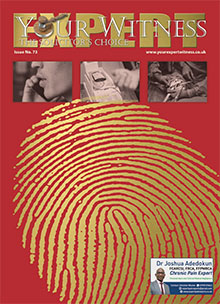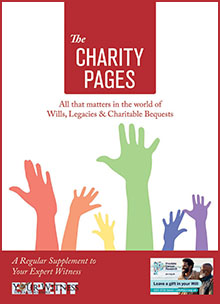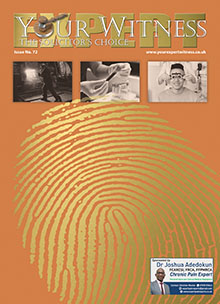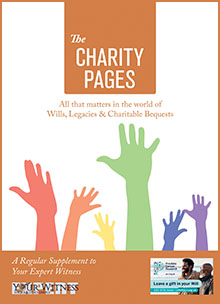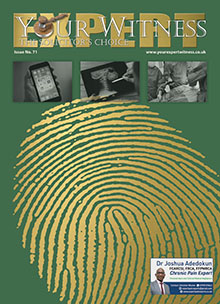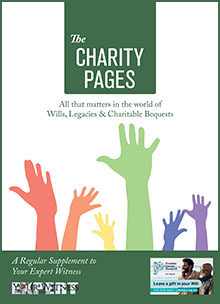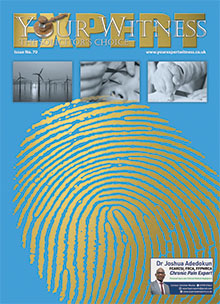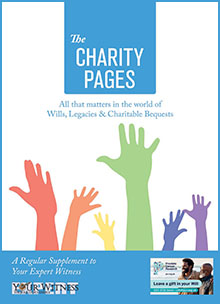IN MY FIRST case, in June 1992, a Pakistani Muslim woman, aged 21, accused an English gynaecologist of removing her entire reproductive system without her consent, and that the operation caused her great loss in life.
She had signed a consent form for laparatomy, and her mother was with her at the time of the operation. However, a High Court judge ruled that the gynaecologist was not negligent when he tragically mistook an endometriosis mass as a spreading ovarian cancer.
My report on the case included the following cultural, religious and ethnic issues.
Cultural issues
Consent
The Nuclear Family model is adhered to in English (Western) culture. The Extended Family model is the norm for Pakistani (Eastern) culture. Therefore, in the Eastern culture, the family members share the consent, choice, decision making, privacy, financial responsibility, gain and loss. They do not have the Social Security system.
In this case, the patient consented for laparatomy. The mother was asked about proceeding half way through the operation by the surgeon, who thought there was a spreading cancer. She consented to save her daughter’s life.
The surgeon would have had to wake the patient if she were English to get informed consent. Unlike her mother, the daughter would have been regarded as sufficiently Westernised to be treated as an English individual. She might have chosen to die rather than to live as a childless woman in the Eastern culture, so there was a complex transcultural confusion.
Finding a husband
Unlike the English culture, arranging a husband in the Eastern culture is very difficult because there is a strong emphasis on having at least one male child to carry on the family name, wealth and religion.
Increase in dowry
Although the dowry (in which parents give money for the care of the bride by the bridegroom) is a Hindu custom, it is also followed by Muslims in Pakistan, India, Bangladesh and Britain. The dowry is increased for disabled and infertile women.
Village chief inheritance
If the husband were to be in a privileged position, such as being the son of a village chief, he would expect at least one son to carry on the office. She could not marry such a celebrity.
Religious issues
Procreation
As with all other religions, Islam pleads for a good family life and having children, which parents can bring up comfortably. Although treated with respect, an infertile woman has a great disadvantage. Stigma of infertility The stigma and stress of infertility may lead a woman to a mental illness, which also carries a stigma as it may be considered by some as a curse and punishment for sins of the woman or her ancestors. If such a woman gets divorced, which is permissible in Islam as a last resort, then she would acquire a third stigma. Permission for second marriage In Islam, if a first wife is infertile she is expected to request her husband to marry a second wife to have children so as to carry the family name, wealth and religion. In Pakistan, it is a legal custom to ensure procreation and the child is expected to be brought up by both wives. They are called ‘senior’ and ‘younger’ wives respectively. It is akin to adoption by the first wife.
Ethnic (racial) issues
Incidence of endometriosis and ovarian cancer Endometriosis and cancer of the ovary are uncommon among the white British. I am not aware of the ethnic variations of these two conditions at the moment, but I should look for them. Nevertheless, there is a need for research to find out the disease pattern in various ethnic groups in the UK and worldwide.
And finally
- It should be remembered that The Human Rights Act 1998, Article 9, grants “the freedom of thought, conscience and religion”.
- Think carefully before, during and after an action, and document it concisely.
- No one, but no one, is above the law.



 “Speculate before you accumulate. I am a long term regular writer and advertiser in 'Your Expert Witness - the Solicitor’s Choice'. This investment pays me substantive dividends; I get more Expert Witness work with every issue. Not only solicitors and barristers but also judges seem to read it. It is a win-win situation. Success breeds success; I must continue to write and advertise.”
“Speculate before you accumulate. I am a long term regular writer and advertiser in 'Your Expert Witness - the Solicitor’s Choice'. This investment pays me substantive dividends; I get more Expert Witness work with every issue. Not only solicitors and barristers but also judges seem to read it. It is a win-win situation. Success breeds success; I must continue to write and advertise.”












